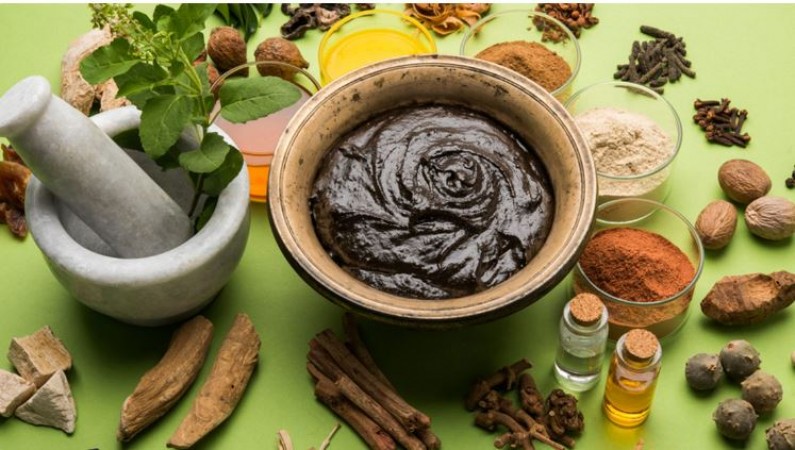
In the vast medical landscape, diabetes remains a formidable challenge, affecting millions worldwide. The conventional medical approach, allopathy, often asserts that diabetes has no permanent cure, relying instead on management strategies. Amidst this backdrop, Ayurveda emerges as an intriguing contender, steeped in ancient wisdom and holistic principles. Can this ancient system of medicine hold the key to a permanent cure for diabetes, or does the narrative of no cure persist even in Ayurveda? Let's delve into the intricacies of this topic to understand the possibilities and limitations.
Understanding Diabetes and its Challenges:
Diabetes mellitus, commonly referred to as diabetes, is a chronic metabolic disorder characterized by high blood sugar levels. The condition arises from the body's inability to properly regulate insulin, the hormone responsible for sugar utilization. Allopathy, the dominant medical paradigm, focuses on managing blood sugar levels through medications, diet, and lifestyle modifications. Despite advancements, the narrative of no permanent cure often prevails due to diabetes' intricate nature and the challenges it poses.
Ayurveda's Approach to Diabetes:
Ayurveda, often hailed as a holistic system of medicine, views health as a harmonious balance between body, mind, and spirit. The Ayurvedic approach to diabetes hinges on identifying imbalances in the body's doshas (Vata, Pitta, Kapha), addressing the root causes, and restoring equilibrium. It acknowledges that diabetes results from a combination of genetic predisposition, poor lifestyle choices, and environmental factors. Ayurveda doesn't offer an instant panacea but emphasizes a holistic lifestyle overhaul to manage diabetes effectively.
The Case for a Permanent Cure:
Dietary Modifications: Ayurveda places immense emphasis on diet and its profound impact on health. Tailoring the diet to the individual's constitution and addressing dosha imbalances can have a positive influence on blood sugar levels. Whole grains, fiber-rich foods, and certain herbs are considered beneficial in managing diabetes. Ayurveda's dietary recommendations align with modern dietary approaches that promote stable blood sugar levels and overall well-being.
Lifestyle Changes: Ayurveda advocates for an active lifestyle as a cornerstone of health. Regular exercise, yoga, and meditation are believed to support metabolic health and aid in managing diabetes. These practices help reduce stress, improve insulin sensitivity, and foster a balanced metabolism, aligning with modern scientific understanding.
Herbal Remedies: Ayurveda harnesses the power of nature's pharmacy to support the body's natural healing processes. Certain herbs like bitter melon, fenugreek, and Indian gooseberry (amla) have been studied for their potential to improve insulin sensitivity and regulate blood sugar levels. While scientific research on these herbs is ongoing, they showcase Ayurveda's commitment to tapping into natural resources for health benefits.
The Reality Check:
While Ayurveda offers a holistic approach to diabetes management, it's vital to approach the notion of a "permanent cure" with caution. Several factors contribute to this tempered perspective:
Complexity of Diabetes: Diabetes is a multifaceted condition influenced by genetics, lifestyle, and environmental factors. Treating and managing it requires a comprehensive, individualized approach tailored to each person's unique circumstances.
Lack of Scientific Evidence: While some Ayurvedic herbs show promise in managing diabetes, the extent of their effectiveness and the lack of consistent scientific evidence prevent definitive claims of a permanent cure. The scientific community calls for more rigorous research to validate Ayurvedic approaches.
Dosha Imbalances: Ayurveda's focus on dosha imbalances might not fully address all aspects of diabetes, particularly in cases where genetic factors play a substantial role. The multifactorial nature of diabetes requires a multifaceted approach.
Holistic Wellness as the Goal:
Ayurveda's strengths lie in its holistic perspective and its ability to address the root causes of health imbalances. Instead of chasing a one-size-fits-all permanent cure, Ayurveda aims to improve quality of life by harmonizing the body, mind, and spirit. The approach focuses on prevention, management, and well-being, steering away from the narrow pursuit of a quick fix.
Ayurveda's approach to diabetes is rooted in personalized care, dietary adjustments, lifestyle modifications, and herbal remedies. While it doesn't promise an instant, one-time cure, it provides a comprehensive way to manage diabetes and enhance overall health. The concept of a permanent cure should be reframed to embrace holistic wellness—empowering individuals to take charge of their health and make choices that contribute to long-term well-being. The essence of Ayurveda lies in cultivating balance, nurturing health, and fostering resilience on the journey towards well-being.
The Radiant Symbolism: The Importance of the Sun in Different Religions
The Solar Enigma Unveiled: How Sun Study Benefits Humanity and the Globe
India's Aditya L-1 Solar Mission and Exploring the Sun: A Journey Through Solar Research